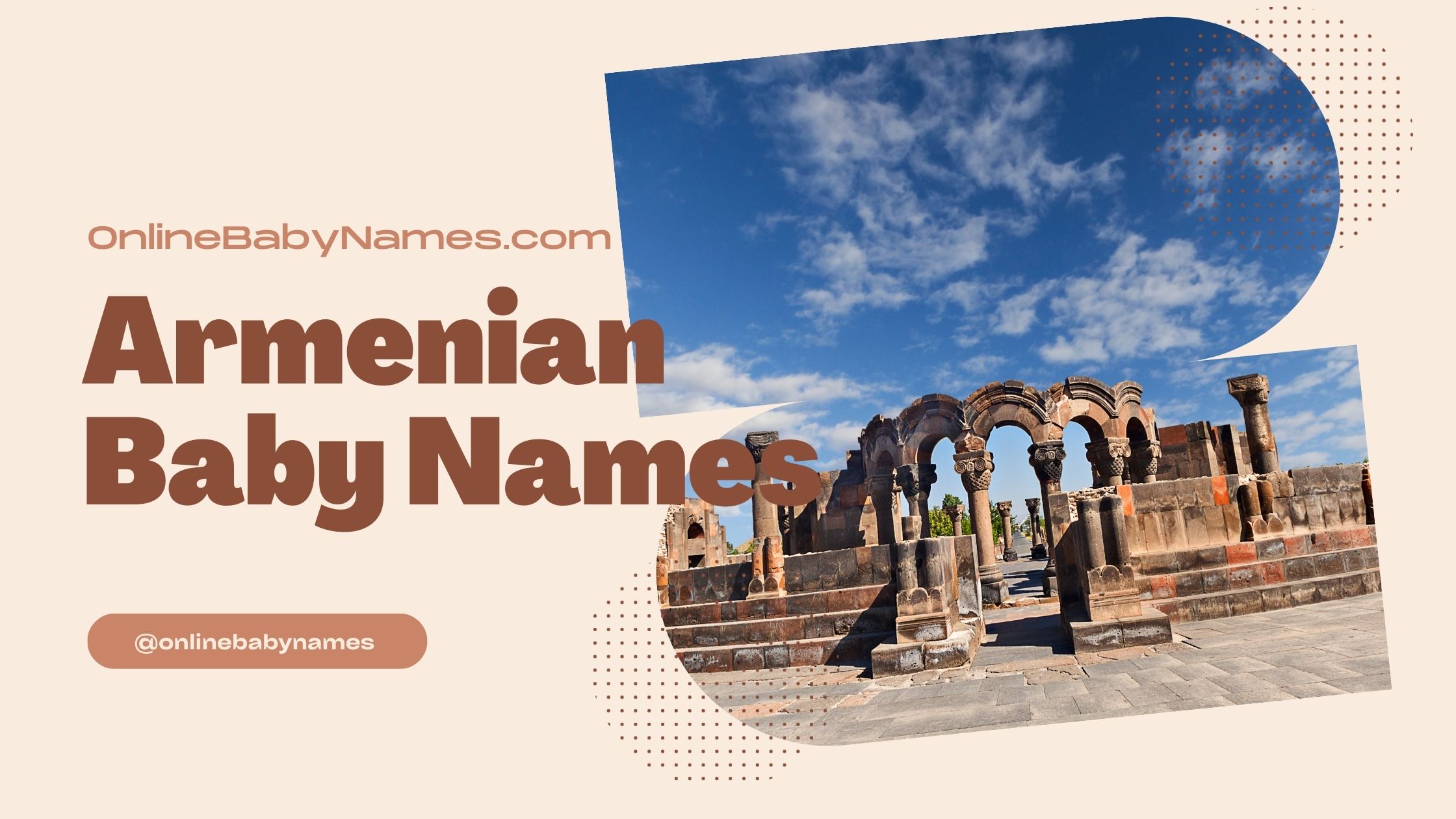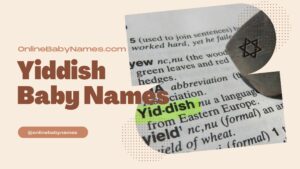
When it comes to choosing a unique and meaningful name for your little one, Russian baby names hold a special charm. Steeped in history and cultural significance, these names can be a great way to honor your family’s heritage or simply add a touch of international flair to your baby’s moniker. I’m excited to share some of the most beautiful and interesting Russian baby names with you in this article.
As we dive into the richness of Russian names, it’s important to understand their structure to fully appreciate their beauty. Most Russian names have a first name, patronymic (derived from the father’s first name), and a last name. The first name, or given name, holds personal meaning and is often chosen with care, while the patronymic and last name reflect family connections. It’s in these given names that we’ll find the most diversity – and fascination.
In this list of captivating Russian baby names, I’ll explore both traditional and contemporary options, shedding light on their meanings, background, and the notable figures who have carried them. So let’s embark on this enchanting journey and discover the perfect Russian name for your bundle of joy!
Rich History of Russian Names
Diving into the world of Russian baby names, it’s essential to acknowledge the rich history behind these names. Often influenced by religion, culture, and national heroes, Russian names have evolved over time while maintaining a strong foundation in tradition.
In ancient times, Russian names were derived from Slavic pagan names. They often held significant meaning, with connections to nature or the divine. As Christianity spread throughout Russia in the 10th century, Russian names started to include biblical and Christian saints’ names, such as Ivan (John) and Maria (Mary).
The 19th and 20th centuries brought about a wave of change in Russian names. During the Soviet era, many citizens were encouraged to adopt revolutionary names that reflected the new political climate. Names like Lenin and Svetlana emerged during this period, showcasing the influence of politics on baby naming trends.
To appreciate the beauty and depth of Russian names, it’s helpful to understand their structure:
- First name: This is the given name, which is typically chosen based on family history or personal preference.
- Patronymic: A middle name derived from the father’s first name, indicating lineage. For example, if the father’s name is Ivan, the patronymic for a son would be Ivanovich, and for a daughter, it would be Ivanovna.
- Last name: The family name, typically passed down through generations. In many cases, these names have a -vich/-evich or -ova/-eva ending for males and females, respectively.
These distinct components of Russian names create a strong sense of identity and family lineage.
When choosing a Russian name for their child, parents often take inspiration from various sources, such as:
- Family history: honoring a loved ancestor or continuing a naming tradition.
- Personal heroes: names of great writers, scientists, or historical figures.
- Ukrainian, Belarusian, or other Slavic names: honoring connections to nearby countries and languages.
- Nature-inspired names (flower names, bird names, elements, seasons): reflecting the beauty of the natural world.
Exploring the vast collection of Russian baby names, it becomes apparent how deeply rooted they are in the rich history and diverse culture of Russia. These names carry profound meaning, connecting generations and weaving a tapestry of stories and traditions.
Popularity Trends in Russian Baby Names
In recent years, there’s been a noticeable shift in the popularity of Russian baby names. Not only are traditional names gaining more attention, but new and unique names are also on the rise. Let’s dive into what’s shaping these trends and explore some of the most popular names making a splash today.
One factor driving the trend of classic Russian names is the growing appreciation for the nation’s rich cultural heritage. Parents are increasingly turning to historical names with deep roots in literature, religion, and national identity. Some popular examples include:
- Alexander (Александр)
- Anastasia (Анастасия)
- Dmitry (Дмитрий)
- Ekaterina (Екатерина)
- Ivan (Иван)
- Maria (Мария)
- Mikhail (Михаил)
- Sofia (София)
At the same time, I’ve observed an increase in contemporary names, inspired by Western culture and global trends. Although many classic Russian names remain trendy, parents are also considering nontraditional options. Examples of these names are:
- Artem (Артем)
- Daria (Дарья)
- Kirill (Кирилл)
- Liza (Лиза)
- Maxim (Максим)
- Polina (Полина)
- Roman (Роман)
- Victoria (Виктория)
A fascinating development I’ve noticed is the rise of unisex names. This trend indicates a move towards greater gender equality and a break from traditional gender stereotypes in naming practices. Some popular unisex names in Russia include:
- Alexey (Алексей)
- Nikita (Никита)
- Sasha (Саша)
- Valery (Валерий)
The following markdown table shows the top 5 popular names for boys and girls in Russia in recent years:
| Rank | Boys | Girls |
|---|---|---|
| 1 | Alexander | Sofia |
| 2 | Maxim | Maria |
| 3 | Artem | Anna |
| 4 | Ivan | Alisa |
| 5 | Mikhail | Victoria |
In conclusion, the popularity trends for Russian baby names are shaped by a blend of historical traditions, contemporary influences, and an increasing interest in unisex names. Keep an eye on these trends as they continue to evolve, offering a rich tapestry of naming options for parents in Russia and beyond.
Traditional Russian Names and Their Meanings
When it comes to Russian baby names, there’s a wide variety of traditional and culturally rich options to choose from. I’ve compiled a selection of some popular Russian names and their meanings for those interested in naming their child in honor of this fascinating culture.
Boy Names
- Ivan (Иван): This name means “God is gracious.” It’s one of the most popular Russian names, and it’s a variation of the English name John.
- Dmitri (Дмитрий): Derived from the Greek name Demetrius, Dmitri means “earth-lover” or “follower of Demeter,” the Greek goddess of agriculture.
- Nikolai (Николай): Meaning “victorious people,” this name comes from the Greek name Nicholas. It’s commonly associated with St. Nicholas, the patron saint of Russia.
Girl Names
- Anastasia (Анастасия): This beautiful name means “resurrection.” In Russian folklore, Anastasia is a popular name for princesses and royalty.
- Tatiana (Татьяна): Derived from the Roman name Tatius, this elegant name doesn’t have a well-established meaning. However, it’s often used to symbolize nobility and beauty, thanks to the legacy of several Russian royal figures bearing the name.
- Ekaterina (Екатерина): A Russian variation of the name Catherine, which means “pure.” Several prominent Russian women have carried this name, including Catherine the Great.
It’s important to note that many Russian names also come with shortened forms, called diminutives. These nicknames are often used to show affection and familiarity. For example, Ivan may be known as Vanya, Dmitri as Dima, and Anastasia as Nastya. Be aware of these diminutives when considering Russian names for your child.
In Russia, it’s customary to give children a patronymic name in addition to their first and last names. A patronymic name is derived from the father’s first name and is essentially an extra middle name. For example, if a father’s name is Ivan, his son’s patronymic name would be Ivanovich, while his daughter’s would be Ivanovna.
Here’s a summary of these traditional Russian names and their meanings:
| Name | Gender | Meaning | Diminutive |
|---|---|---|---|
| Ivan | Boy | God is gracious | Vanya |
| Dmitri | Boy | Earth-lover | Dima |
| Nikolai | Boy | Victorious people | Kolya |
| Anastasia | Girl | Resurrection | Nastya |
| Tatiana | Girl | Nobility and beauty | Tanya |
| Ekaterina | Girl | Pure | Katya |
When choosing a Russian name for your baby, remember that each name has its own cultural and historical significance. By picking a traditional Russian name, you’re not only giving your child a unique and beautiful name but also linking them to the rich tapestry of Russian history and culture.
Unique and Fashionable Russian Baby Names
When selecting a name for your newborn, it’s essential to find one that reflects your family’s heritage and values. Russian baby names offer a wealth of unique and fashionable options. In this section, I’ll dive into some popular choices and explore their meanings and history.
Traditional Russian names often have a rich history and are deeply connected to the country’s culture. Some standout options include:
- Dmitry: With its origins in the Greek name “Demetrios,” it means “follower of Demeter,” the goddess of agriculture.
- Anastasia: This elegant name is a derivative of the Greek name “Anastásios” and represents resurrection.
- Ivan: Based on the Hebrew name “Yohanan,” it means “God is gracious” and is a popular choice among Russian families.
For a modern take, many parents are turning to contemporary Russian names that showcase a blend of tradition and style. Some popular picks in this category include:
- Danila: A trendy adaptation of the more traditional “Daniel,” which means “God is my judge.”
- Mila: With roots in Slavic culture, this delicate name means “gracious” or “dear.”
- Kirill: Inspired by the Greek name “Cyril,” it translates to “lordly” or “masterful.”
If you’re after a name with a feminine touch, then these lovely options might pique your interest:
- Kseniya: A unique and graceful name sourced from the Greek name “Xenia,” which means “hospitality.”
- Svetlana: This radiant name means “light” and is often associated with warmth and kindness.
- Polina: An elegant name derived from the Latin “Paula,” which translates to “small” or “humble.”
On the other hand, if you prefer something with a strong and confident feel, take a look at these masculine options:
- Max: Short for “Maxim” or “Maximilian,” Max is a powerful name with Latin origins, meaning “greatest.”
- Nikita: A name connected to the Greek goddess of victory, “Nike,” this choice means “unconquerable” or “victorious.”
- Vlad: Often a short form of “Vladimir,” this name carries a strong meaning, “to rule” or “power.”
The selection of Russian baby names mentioned above represents a well-rounded mix of traditional, contemporary, feminine, and masculine options. Each name carries its own unique history and meaning, ensuring that whatever you choose for your newborn, it’s bound to be a distinctive reflection of your family’s heritage.
Russian Naming Customs and Traditions
When it comes to Russian baby names, it’s important to understand the customs and traditions that have shaped them for centuries. In this section, I’ll delve into various aspects of Russian naming practices, from the significance of the patronymic to the influence of Russian literature.
First off, the Russian naming system often consists of three parts: the given name, patronymic, and surname. The given name is what we think of as a first name, which parents usually choose for their child. The patronymic, on the other hand, derives from the father’s first name and serves as a way to honor the child’s father. As for the surname, it’s common for Russian surnames to have gender-specific forms.
For example, if a father named Ivan has a son named Alexey and a daughter named Maria, their full names might be the following:
- Alexey Ivanovich (patronymic) Ivanov (son)
- Maria Ivanovna (patronymic) Ivanova (daughter)
In addition to the naming system, Russian parents typically consider the meaning of the name they bestow upon their child. Religious and spiritual names are prevalent since many Russians practice Orthodox Christianity. However, the popularity of certain names can fluctuate with cultural trends, influenced by historical figures, literary characters, or even foreign names adapted to the Russian language.
Russians have long turned to their rich literary history for baby name inspiration. Some popular names stemming from literary characters include Alexander (from Pushkin’s “Eugene Onegin”) and Anna (from Tolstoy’s “Anna Karenina”). Additionally, certain traditional Slavic names have seen a resurgence in popularity in recent years, such as Svetlana, which means “light,” and Zoya, meaning “life.”
The celebration of Name Days is another significant aspect of Russian naming customs. Name Days are associated with a specific Orthodox Christian saint, and it’s common for children to be named after the saint whose feast day is closest to the child’s birth. These Name Day celebrations can be as important to some as birthdays.
To recap, when examining Russian baby names and their associated customs:
- A three-part naming system is common: given name, patronymic, derived from the father’s name, and a gender-specific surname.
- Name meanings often have religious or spiritual significance.
- Inspiration from Russian literature and traditional Slavic names.
- Name Days are celebrated in honor of the associated saint.
Understanding these customs and traditions can offer a deeper appreciation for the beauty and meaning behind Russian baby names.
Unisex Russian Baby Names
When it comes to choosing a baby name with Russian origins, you’ll find a treasure trove of options. Unisex Russian baby names are especially in demand because they can work for a boy or a girl. In this section, I’ll introduce some popular and unique unisex Russian baby names that you might want to consider for your little one.
Sasha is a popular unisex Russian name that means “defender of the people.” It’s easy to pronounce, making it a top choice for parents looking for a name that’ll work well in various cultures and languages. Other similar options include:
- Misha: This name means “who is like God” and is derived from the name Mikhail.
- Dima: Short for Dimitri, meaning “earth-lover” or “follower of Demeter.”
Another category of unisex names comes from Russian last names, which sometimes become first names. These names often have a strong, bold character and are perfect for modern parents seeking a unique name. Some examples are:
- Kirill: Derived from the personal name Kyros, which means “noble.”
- Nikita: Not to be confused with the Western female name, Nikita is a popular Russian masculine name meaning “victory of the people.”
- Alek: Short for Alexander, meaning “defender of the people.”
Consider incorporating nature in your child’s name. Many Russian names are inspired by the beauty of nature, and some of these names can be unisex. Here are a few examples:
- Yeva: Meaning “life” or “life-giving,” this name is derived from the Hebrew name Chava.
- Zima: This distinctive name means “winter” in Russian and is an excellent choice for a child born during the colder months.
- Lesya: Derived from Russian folktales, Lesya is a diminutive of the name Alexandra and means “protector of mankind.”
| Unisex Name | Meaning |
|---|---|
| Sasha | Defender of the people |
| Misha | Who is like God |
| Dima | Earth-lover |
| Kirill | Noble |
| Nikita | Victory of the people |
| Alek | Defender of the people |
| Yeva | Life |
| Zima | Winter |
| Lesya | Protector of mankind |
Choosing a unisex Russian baby name offers versatility and a sense of connection to Russian culture and heritage. With such a wealth of choices available, you’re sure to find a unique and meaningful name for your little one.
Russian Names Inspired by Nature and Folklore
When it comes to Russian baby names, there’s a trove of inspiration to be found in the country’s rich nature and folklore. In this section, I’ll share some captivating options that draw from these sources.
One source of inspiration for Russian names is the country’s diverse flora. With a wide range of native plants across Russia, it’s not surprising that many names have botanical origins. Here are a few examples:
- Anfisa (Анфиса) – Derived from the Greek “antheia”, this name means “blossom” or “flowering”.
- Liana (Лиана) – A name of Latin origin, referring to a type of woody, climbing plant.
- Roza (Роза) – The Russian version of “Rose”, symbolizing the beloved flower.
Russia’s vast landscapes also provide name inspiration. Mountains, rivers, and other natural features have given rise to some gorgeous options:
- Aysa (Айса) – A name with possible Turkic roots, Aysa is also the name of a river in Tatarstan.
- Alina (Алина) – A popular Russian name that may be inspired by the beautiful Alin Mountain range in the Far East.
- Ural (Урал) – Named after the iconic Ural Mountains, this name embodies strength and prestige.
Folklore is another fruitful source for Russian names. With countless tales and legends, this cultural heritage has brought forth unique monikers:
- Boris (Борис) – This name is thought to originate from Turkic “bog” (god) and “or” (hero). It also appears in “The Tale of Igor’s Campaign,” a famous 12th-century epic.
- Vasilisa (Василиса) – A main character in the Russian fairy tale “Vasilisa the Beautiful,” her name is derived from Greek “basilissa,” meaning “queen”.
- Sadko (Садко) – A legendary musician from the famous Novgorodian epic, “The Tale of Sadko”.
| Name | Inspiration Source | Possible Meaning |
|---|---|---|
| Anfisa | Flora | Blossom, flowering |
| Liana | Flora | Climbing plant |
| Roza | Flora | Rose |
| Aysa | Landscape | River in Tatarstan |
| Alina | Landscape | Alin Mountain range |
| Ural | Landscape | Ural Mountains |
| Boris | Folklore | God, hero |
| Vasilisa | Folklore | Queen |
| Sadko | Folklore | Legendary musician |
In conclusion, if you’re looking to choose a Russian baby name both meaningful and unique, consider exploring the country’s vast nature and folklore for inspiration. These names not only resonate with Russia’s rich cultural heritage but also celebrate its breathtaking landscapes and captivating stories.
Tips for Choosing the Perfect Russian Baby Name
Choosing the perfect Russian baby name for your little one can be a rewarding experience, but it can also be overwhelming with so many beautiful names to choose from. Here are some helpful tips to make your decision a bit easier:
- Start by exploring the meaning and history of different Russian names. Russian names often carry deep cultural and historical significance which can help you find a name that resonates with your family’s values and traditions.
- Consider the baby’s surname. It’s important to ensure the first name flows well with the last name. Try saying the full name out loud multiple times to see if it has a nice rhythm and cadence.
- Think about nicknames and diminutives which are common in Russian culture. Many Russian names have shorter forms that are used more frequently in everyday life, like Alexander (Sasha) or Ekaterina (Katya). Choose a name with a diminutive you like.
- Look up names with positive associations. Some names might be linked to famous people, popular literature, or historical events. If you find a name you like, research its associations to make sure they are in line with your values.
- Take name popularity into account. While some parents prefer unique names, others might want to choose a more popular name for their child. Use popular baby name lists, like the Russian Rosstat data, to gauge the popularity of certain names. Here are top 5 Russian names for boys and girls in 2020: Boys Girls Alexander Sofia Maxim Maria Artem Anna Ivan Alisa Dmitry Victoria
- Consult with family and friends to gather their input and suggestions. Sometimes, having an external perspective can help you narrow down your list or even introduce you to a name you hadn’t considered before.
- Be prepared to be flexible. Sometimes, a name you love might not feel like the right fit once you meet your baby for the first time. It’s okay to change your mind and choose a different name, even after months of consideration.
Remember, the most important factor when choosing a Russian baby name is to find one that best reflects your family’s values, connects with your heritage and feels right for your baby. Happy naming!
Russian Names in Literature and Pop Culture
Russian literature has given us numerous remarkable characters, each with their own unique names. These names have become iconic and classic, not only in Russia but also around the world. I’ve noticed some popular names that emerge from various sources of Russian literature and films, which you might find inspiring.
Some of the most notable names include Anna from Leo Tolstoy’s Anna Karenina and Lolita from Vladimir Nabokov’s controversial novel, Lolita. Additionally, Fyodor Dostoevsky’s novel Crime and Punishment introduces us to the complex character of Raskolnikov.
Over the years, Russian names have also become popular in Hollywood movies and television series, reflecting the influence of Russian culture. Here are a few notable examples:
- Ivan Drago, the antagonist in Rocky IV
- Natasha Romanoff, also known as Black Widow, a Marvel Comics superhero
- Pavel Chekov, the navigator from the original Star Trek series
Russian names have a certain mystique that seems to captivate audiences and readers alike. Below is a list of some popular Russian names in literature and pop culture:
- Anna (Анна) – Anna Karenina by Leo Tolstoy
- Lolita (Лолита) – Lolita by Vladimir Nabokov
- Raskolnikov (Раскольников) – Crime and Punishment by Fyodor Dostoevsky
- Ivan Drago (Иван Драго) – Rocky IV
- Natasha Romanoff (Наташа Романоф) – Black Widow in Marvel Comics
- Pavel Chekov (Павел Чехов) – Star Trek
It’s important to note that traditional Russian names typically consist of three parts: the given name, the patronymic, and the family name. Patronymics are derived from the father’s first name, usually ending in -ович for males and -овна for females. This naming structure adds a sense of heritage and tradition to Russian names.
So, if you’re looking for Russian baby names with a connection to literature and pop culture, be sure to consider the roots, meanings, and cultural significance behind them. The rich history of Russian literature and influence in popular culture offer endless possibilities for inspiration.
Conclusion: Embracing Russian Heritage Through Names
Exploring the world of Russian baby names has been a fascinating journey. I’ve discovered that Russian names can be just as diverse as the country’s rich cultural heritage. From classic monikers like Ivan and Tatiana to more unique choices like Vasilisa and Grigori, there’s a Russian name suited to every parent’s preference and style.
Personally, I was struck by the distinctive combinations possible through the use of diminutives and patronymic names. It’s a great way to honor one’s family lineage while still giving a child their unique identity. Some examples of these combinations include:
- Ivan Ivanovich (son of Ivan)
- Natalia Petrovna (daughter of Petr)
Furthermore, many Russian names have deep meanings, stemming from roots in history, religion, and mythology. A few examples of such names with their meanings are:
- Svetlana – “Light”
- Alexei – “Defender”
- Anastasia – “Resurrection”
Embracing Russian names for babies not only pays tribute to cultural ancestry, but can also be a source of pride and inspiration throughout a child’s life. As parents continue to search for names that are both meaningful and unique, Russian baby names offer a wealth of choices to consider.
I hope this article has been informative and insightful in understanding the beauty and significance of Russian baby names. Whether you’re a parent-to-be, a name enthusiast, or simply someone with a passion for learning about different cultures, I trust that you’ve found value in this exploration of Russian heritage through names.
In today’s world, it’s essential to celebrate and share our diverse backgrounds, and choosing a Russian baby name can be an excellent way to do so. Ultimately, the process of selecting a name is deeply personal, and I encourage you to delve deeper into the rich and storied world of Russian baby names to find the one that resonates best with your family’s heritage, values, and aspirations.















